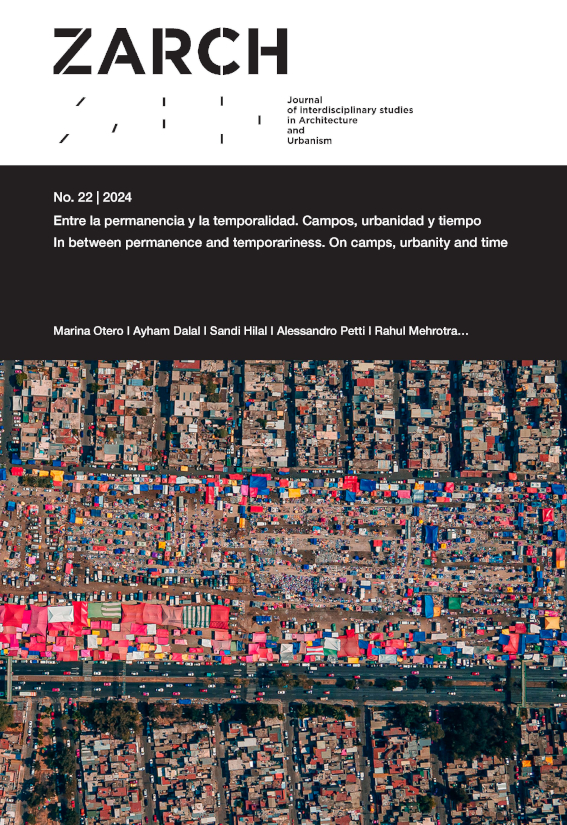On permanent temporariness. A conversation with Sandi Hilal and Alessandro Petti
DOI:
https://doi.org/10.26754/ojs_zarch/zarch.20242210344Keywords:
Temporariness, Permanence, Camps, Urbanity, TimeAbstract
Sandi Hilal and Alessandro Petti have generously assisted us, remotely, at their homes in Stockholm, where they have lived for six years. Sandi is a professor of architecture at the University of Lund, and Alessandro is a professor of architecture and social justice at the Royal Institute of Art. They have been working together for more than twenty years within the framework of the DAAR —Decolonizing Architecture Art Research— platform, with which they have carried out research and architecture projects that are situated between artistic, pedagogical, architectural and political action. Last year, they obtained the Golden Lion at the XVIII Architecture Exhibition of the Biennale di Venezia with the project Ente di Decolonizzazione – Borgo Rizza that they have underway in Sicily, which is where Alessandro is from. Sandi is Palestinian, and the two of them, along with their daughters, have been living together in Palestine for a decade, where they have developed many of their projects. Because of these strong personal and family ties with Palestine, in addition to their commitment to their political struggles, the war in Gaza has deeply affected them. Both are in a state of 'shock,' but at the same time, they rebel against the apparent determination of historical events.
Downloads
References
Agamben, Giorgo, Homo Sacer. Il potere sovrano e la nuda vita. Turín: Einaundi, 1995
Hilal, Sandi; Petti, Alessandro, Permanent Temporariness. Stockholm: Arts and Theory Publishing, 2018
Hilal, Sandi; Petti, Alessandro, Refugee Heritage. World Heritage Dossier. Stockholm: Art and Theory Publishing, 2021
Hilal, Sandi; Petti, Alessandro; “Ente di Decolonizzazione-Borgo Rizza” in Lesley Lokko (ed.) The Laboratory of the Future. Venecia: La Biennale di Venezia, 2023
https://www.decolonizing.ps/site/campus-in-camps-2012-2015/ [Consulted on 22.02.2024]
https://www.decolonizing.ps/site/about/ (Consulted on 26.02.2024)
Petti, Alessandro, “Arcipelaghi e enclave” Architettura dell’ordinamiento spaziale contemporáneo. Milán: Bruno Mondadori, 2007


